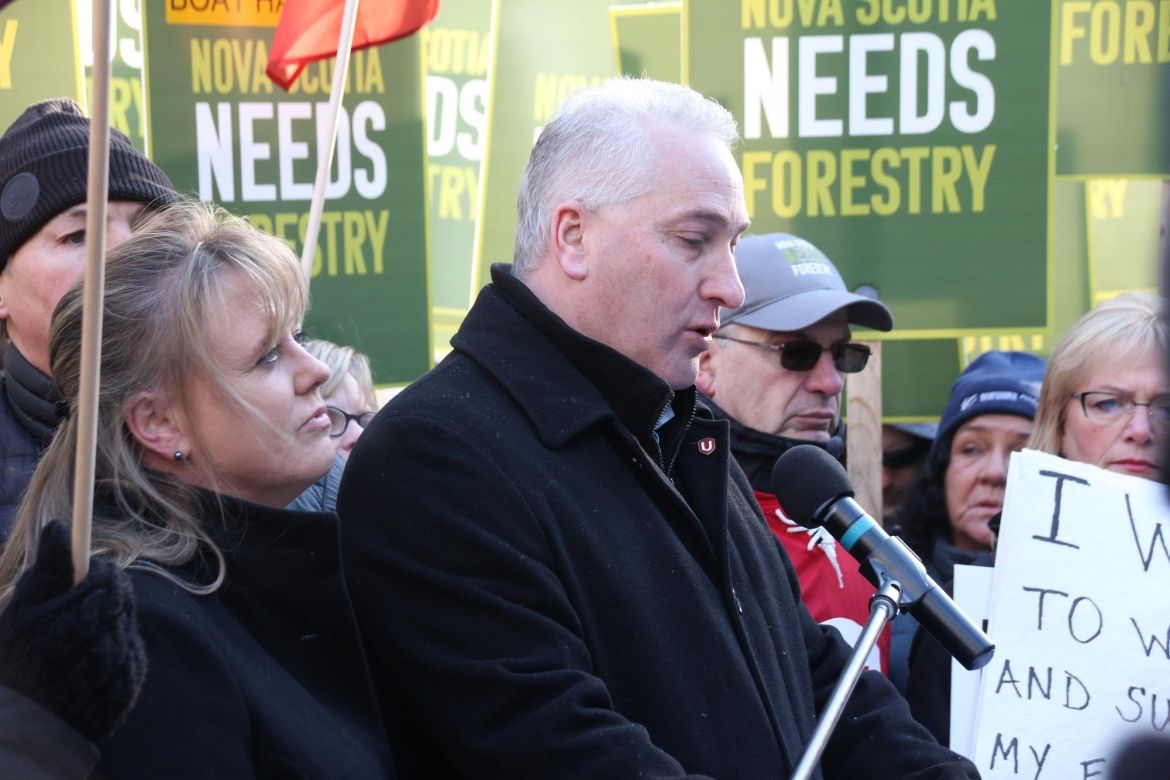
Share
Premier Stephen McNeil announced on December 20 that the Boat Harbour Act would stand, mandating a closure of the effluent treatment facility currently used by the Northern Pulp mill in Pictou, NS, by the end of January. Without a place to treat effluent, Northern Pulp must close. More than 300 workers at the mill will lose their jobs, along with an expected 2,700 forestry workers in the tightly-interconnected industry across the province.
“In all my years of doing this work I have never seen an elected official gut a rural industry, casting tens of thousands into unemployment and financial uncertainty for the sake of a regulatory timeline,” said Jerry Dias, Unifor National President. “This is a horrible outcome for our members at Northern Pulp, for thousands of workers connected to the forestry sector and a shameful mark on the McNeil government.”
Nova Scotia Environment announced on December 17 that it would need a complete environmental assessment on the proposed state-of-the-art effluent treatment facility to replace Boat Harbour. That process alone could take the company as long as two years to complete, making the legislated closure date of January 31, 2020 unattainable for the mill.
Unifor has long been advocating for a solution to support thousands of jobs while the province rights a historical wrong and closes Boat Harbour, the treatment facility that was placed adjacent to Pictou Landing First Nation in the 1960s.
“We all agreed Boat Harbour had to close. That closure did not have to come at the cost of thousands of rural jobs – there was a solution for the mill to coexist, but there was no political will from McNeil to make it happen,” said Linda MacNeil, Atlantic Regional Director. “Our members and other forestry workers are not the ones responsible for any wrong-doing here. They are people who worked a job that supported their families. They deserve better than to be blamed and sacrificed due to the government’s lack of leadership, consultation or clear regulatory expectations.”
In collaboration with Forest Nova Scotia, Unifor gathered more than a thousand forestry workers, landowners and contractors and 350 forestry trucks in downtown Halifax on December 19. They shared a united message of support for an extension to the Boat Harbour Act, to give time for the additional environmental evaluation to proceed. The following day, the premier announced no such delay would happen and the Boat Harbour Act would stand.
“McNeil’s decision is heartbreaking for so many workers who were committed to finding a path forward that would benefit the entire community,” said MacNeil. “Forestry sector workers across rural Nova Scotia feel abandoned by their premier and misunderstood by a general public who isn’t well-informed on this renewable and vital sector.”
Reports are already coming in from independent contractors who can’t sell their forestry equipment and are facing bankruptcy in the coming months. In a story from The Chronicle Herald, Athol Forestry Co-op in Cumberland County says they have already put a halt on progressive forest management treatments like the ones called for by the Lahey Report, a provincially-commissioned report with recommendations for a sustainable forestry sector.
Without the value-add market for pulp wood, proper silviculture and forest management may prove too expensive for many woodland operations.
Unifor is continuing conversations with the company and government to advocate for its members and their futures, considering all available options. The union issued an update to members on Friday, January 3 following a meeting with Forestry Transition team leader Kelliann Dean and the Department of Labour and Advanced Education.
“We haven’t given up,” said MacNeil. “At the very least, we need to keep speaking out to set the record straight: this is a case of a company investing in the environment, in the community, and in the sustainability of the operation and a government that changed the rules of the game multiple times in order to shut them down.”





